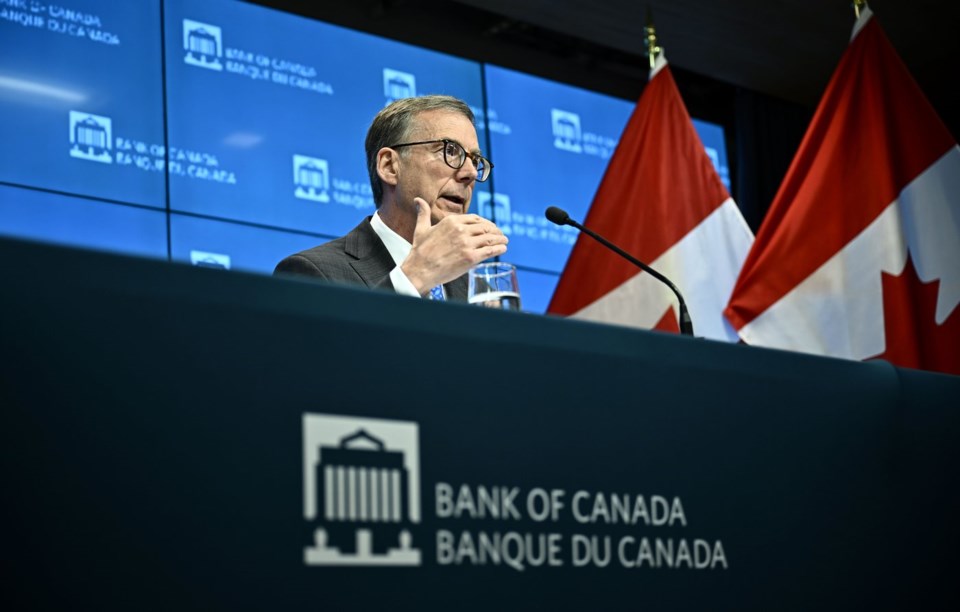OTTAWA — The Bank of Canada will announce its latest interest rate decision on Wednesday amid speculation the central bank will deliver its first rate cut in more than four years.
On balance, financial markets expect the bank to lower its key lending rate by a quarter of a percentage point, but the view is by no means universal, with some expecting it to wait.
"All the ingredients are there to justify lower interest rates," said RBC's assistant chief economist Nathan Janzen in an interview.
Janzen says while he expects the central bank to cut interest rates in both June and July, he says the central bank will likely maintain a "cautious tone" about future moves.
An interest rate cut this week would mark a major turning point for the Bank of Canada, which began aggressively raising interest rates in March 2022 in response to rising inflation.
It would also bring relief to households with variable-rate mortgages and reduce the jump in payments for those who are set to renew their mortgage in the coming months.
But Janzen noted the shift to interest rate cuts signals bad news as well, because it's a "symptom of the Canadian economy underperforming."
Bank of Canada governor Tiff Macklem has said a rate cut is within the realm of possibilities, but that the decision will be guided by the economic data. He has said the central bank is seeing what it needs to see, but wants to see it for longer to be confident that progress toward price stability will be sustained.
Economists have been particularly encouraged by Canada's marked slowdown in price growth.
The annual inflation rate for April came in at 2.7 per cent compared with 2.9 per cent in March.
Core measures of inflation, which strip out volatile prices, have also steadily eased in recent months.
The interest rate decision will follow a report by Statistics Canada last week that showed economic growth in the first quarter fell short of the Bank of Canada's expectations. The report also revised its reading for growth in the fourth quarter of 2023 lower.
However, the April jobs report showed employment rose by 90,000 for the month and marked the largest employment increase in more than a year. The unemployment rate held steady at 6.1 per cent, a full percentage point higher than a year ago.
Tu Nguyen, an economist with accounting and consultancy firm RSM Canada, says there's "no question" the Bank of Canada should cut interest rates this week.
"Holding at five per cent could accomplish very little besides holding the economy back, given that inflation has already fallen, the economy hasn't grown at all in quite some time now and (the) unemployment rate is rising," she said.
Nguyen said even after cutting interest rates, the Bank of Canada's policy rate will remain "restrictive" for some time, meaning interest rates will continue to weigh on the economy and slow inflation down.
RBC expects the central bank to cut interest rates four times this year, bringing its key benchmark rate down to four per cent.
In contrast, it only expects one quarter-point cut from the U.S. Federal Reserve.
"We think that amount of divergence is justified, given the weaker Canadian economic growth backdrop," Janzen said.
Meanwhile, there are still holdouts for a July cut instead.
In a report on Friday, TD said it expects the Bank of Canada to wait until next month to cut interest rates, despite progress on the inflation front.
"Firstly, governor Macklem has only acknowledged progress, but hasn’t explicitly signaled any intention to make a move," TD said.
TD also noted the Bank of Canada's recent summary of deliberations showed some governing council members thought the risk was lower that higher rates would slow economic activity by more than necessary.
This report by The Canadian Press was first published June 3, 2024.
Nojoud Al Mallees, The Canadian Press



